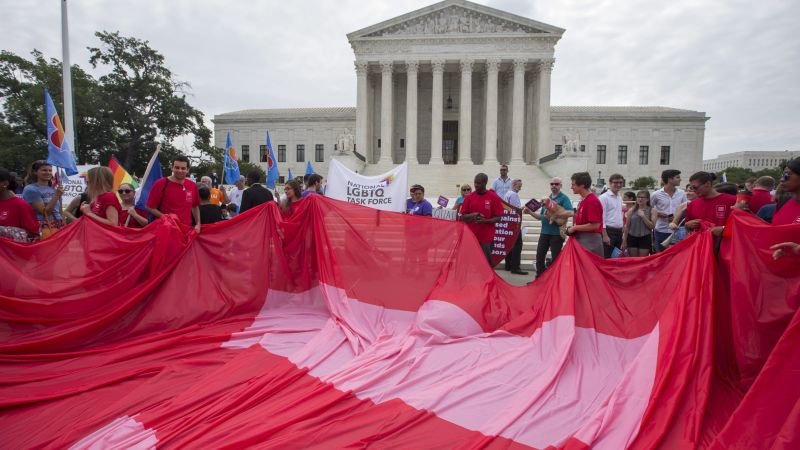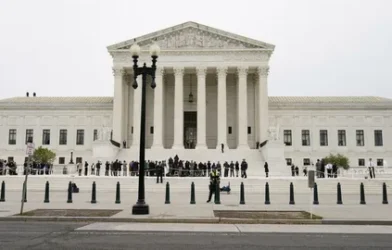The issue of supreme court gay marriage has been one of the most defining civil rights debates in modern American history. The United States Supreme Court played a crucial role in shaping the national conversation on same-sex marriage, ultimately recognizing it as a constitutional right. This decision not only changed the legal landscape of marriage but also marked a turning point in the struggle for equality and human rights across the country.
The Road to Legalization
Before the Supreme Court’s landmark ruling, same-sex marriage was a contentious issue handled differently across states. Some states allowed it, while others banned it outright, leaving millions of LGBTQ+ couples without equal protection under the law.
The movement for marriage equality gained momentum during the early 2000s, with activists and legal experts pushing for recognition based on the principles of freedom and equality. A series of lower court rulings challenged state bans, paving the way for a nationwide showdown at the Supreme Court.
The Landmark Case: Obergefell v. Hodges (2015)
The historic turning point came in Obergefell v. Hodges, decided on June 26, 2015. The case centered on James Obergefell, who sued the state of Ohio after it refused to recognize his marriage to his late husband, John Arthur. The couple had married legally in Maryland, but Ohio’s laws did not acknowledge their union.
The Supreme Court ruled in a 5-4 decision that the Constitution guarantees the right to same-sex marriage under the Fourteenth Amendment, which ensures equal protection and due process. Justice Anthony Kennedy, writing for the majority, stated that marriage is a fundamental right inherent to the liberty of individuals, and denying that right to same-sex couples violates the principles of equality.
This decision effectively legalized same-sex marriage nationwide, making it one of the most significant civil rights victories in modern U.S. history.
The Impact of the Ruling
The Obergefell ruling transformed the lives of millions of Americans. Same-sex couples gained the same legal rights and responsibilities as heterosexual couples, including adoption rights, inheritance rights, and access to spousal benefits.
Beyond legal protections, the decision symbolized social acceptance and acknowledgment of LGBTQ+ relationships. It marked a broader cultural shift toward inclusivity and love without discrimination. Pride celebrations across the nation became symbols of triumph and hope, as the ruling validated decades of advocacy and struggle.
Ongoing Debates and Challenges
Although the Supreme Court’s decision was groundbreaking, the conversation around same-sex marriage and LGBTQ+ rights continues. Some states and political groups have sought ways to challenge or limit the effects of the ruling through religious freedom claims or restrictions on adoption by same-sex couples.
In 2022, concerns arose after the Supreme Court overturned Roe v. Wade, as Justice Clarence Thomas suggested that the Court should reconsider previous rulings, including Obergefell v. Hodges. This sparked renewed activism and calls to protect marriage equality through federal law.
In response, Congress passed the Respect for Marriage Act in December 2022, which ensures federal recognition of same-sex and interracial marriages. The act also requires states to recognize marriages performed legally in other states, reinforcing the rights granted under the 2015 ruling.
Social and Cultural Transformation
The legalization of gay marriage has had lasting effects on American culture. Television, film, and media have become more inclusive, showcasing same-sex couples as part of everyday life. Public opinion has also shifted dramatically—while only around 30% of Americans supported same-sex marriage in the early 2000s, today that number exceeds 70%, according to recent surveys.
Younger generations have grown up in an era where love and marriage are seen as universal rights, not privileges reserved for certain groups. Schools, workplaces, and communities have become more aware of LGBTQ+ inclusion and equality.
The Supreme Court’s Legacy
The Supreme Court’s decision in Obergefell v. Hodges stands as one of the most powerful examples of how constitutional interpretation can drive social change. It affirmed that the right to marry is not a matter of political opinion but a matter of personal liberty and human dignity.
Justice Kennedy’s words in the majority opinion continue to resonate: “They ask for equal dignity in the eyes of the law. The Constitution grants them that right.”
Conclusion
The Supreme Court’s recognition of gay marriage remains a defining moment in American history—a victory for equality, freedom, and love. While debates about LGBTQ+ rights still persist, the foundation laid by the Court ensures that the principle of equality under the law endures.
As society continues to evolve, the 2015 decision serves as a reminder that progress often begins with courage—the courage to stand for justice, to love freely, and to believe that everyone deserves the same rights, no matter who they are or whom they love.













Comments are closed